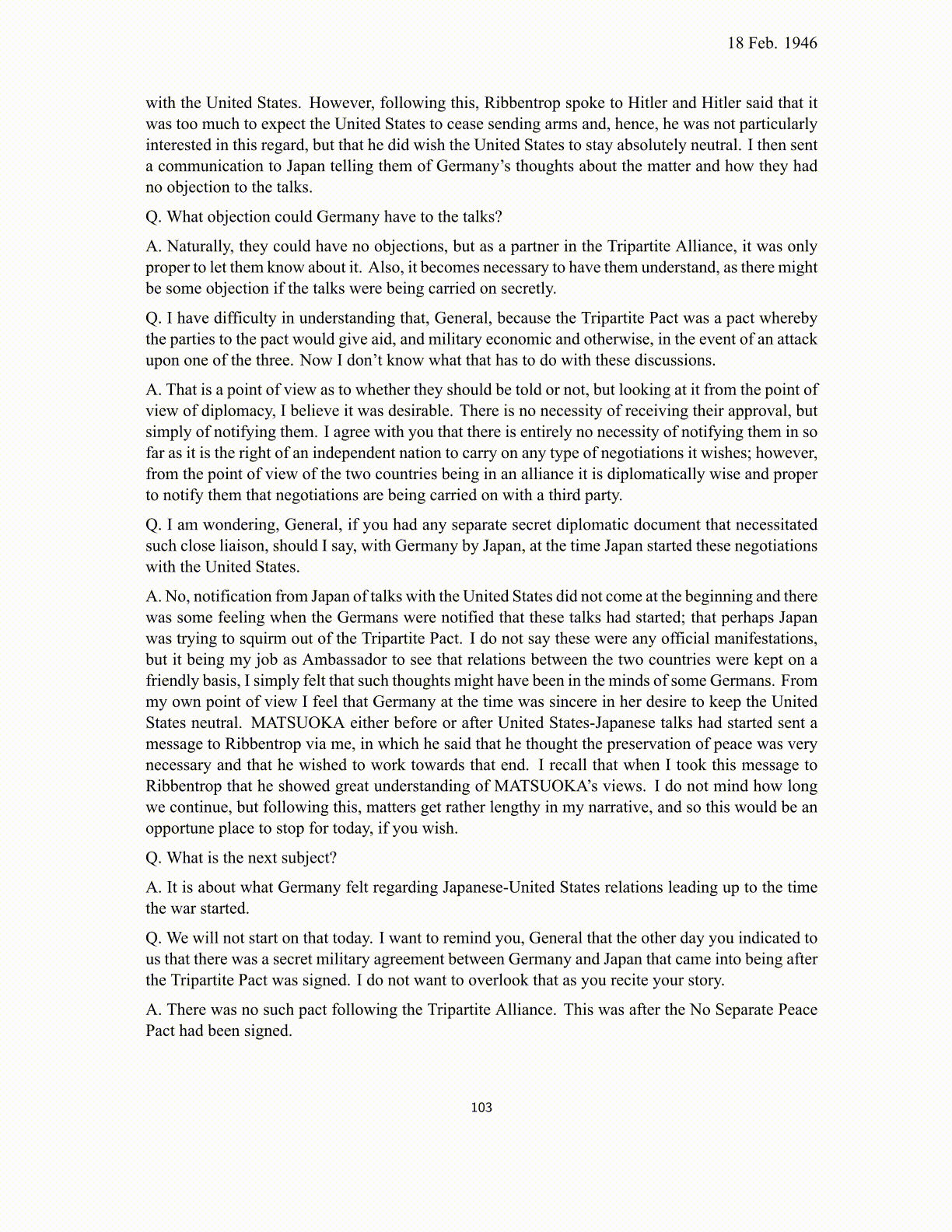
18 Feb. 1946 with the United States. However, following this, Ribbentrop spoke to Hitler and Hitler said that it was too much to expect the United States to cease sending arms and, hence, he was not particularly interested in this regard, but that he did wish the United States to stay absolutely neutral. I then sent a communication to Japan telling them of Germany’s thoughts about the matter and how they had no objection to the talks. Q. What objection could Germany have to the talks? A. Naturally, they could have no objections, but as a partner in the Tripartite Alliance, it was only proper to let them know about it. Also, it becomes necessary to have them understand, as there might be some objection if the talks were being carried on secretly. Q. I have difficulty in understanding that, General, because the Tripartite Pact was a pact whereby the parties to the pact would give aid, and military economic and otherwise, in the event of an attack upon one of the three. Now I don’t know what that has to do with these discussions. A. That is a point of view as to whether they should be told or not, but looking at it from the point of view of diplomacy, I believe it was desirable. There is no necessity of receiving their approval, but simply of notifying them. I agree with you that there is entirely no necessity of notifying them in so far as it is the right of an independent nation to carry on any type of negotiations it wishes; however, from the point of view of the two countries being in an alliance it is diplomatically wise and proper to notify them that negotiations are being carried on with a third party. Q. I am wondering, General, if you had any separate secret diplomatic document that necessitated such close liaison, should I say, with Germany by Japan, at the time Japan started these negotiations with the United States. A. No, notification from Japan of talks with the United States did not come at the beginning and there was some feeling when the Germans were notified that these talks had started; that perhaps Japan was trying to squirm out of the Tripartite Pact. I do not say these were any official manifestations, but it being my job as Ambassador to see that relations between the two countries were kept on a friendly basis, I simply felt that such thoughts might have been in the minds of some Germans. From my own point of view I feel that Germany at the time was sincere in her desire to keep the United States neutral. MATSUOKA either before or after United States-Japanese talks had started sent a message to Ribbentrop via me, in which he said that he thought the preservation of peace was very necessary and that he wished to work towards that end. I recall that when I took this message to Ribbentrop that he showed great understanding of MATSUOKA’s views. I do not mind how long we continue, but following this, matters get rather lengthy in my narrative, and so this would be an opportune place to stop for today, if you wish. Q. What is the next subject? A. It is about what Germany felt regarding Japanese-United States relations leading up to the time the war started. Q. We will not start on that today. I want to remind you, General that the other day you indicated to us that there was a secret military agreement between Germany and Japan that came into being after the Tripartite Pact was signed. I do not want to overlook that as you recite your story. A. There was no such pact following the Tripartite Alliance. This was after the No Separate Peace Pact had been signed. 103